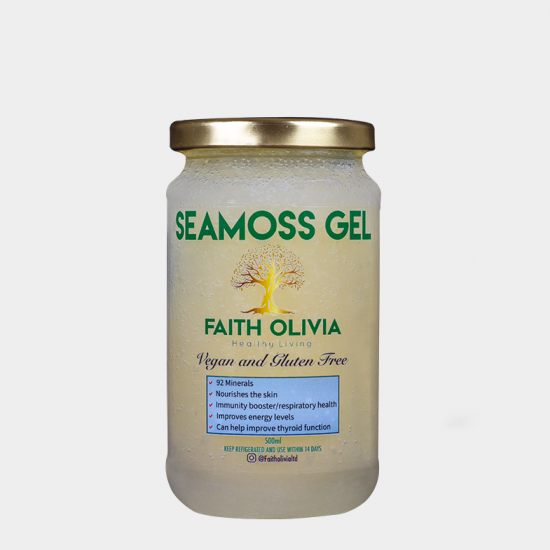Ashwagandha is one of the most important herbs in Ayurveda, a form of alternative medicine based on Indian principles of natural healing.
It has been used for over 3,000 years to relieve stress, increase energy levels, and improve concentration
Ashwagandha is Sanskrit for smell of the horse, which refers to both its unique smell and ability to increase strength.
Its botanical name is Withania somnifera, and it’s also known by several other names, including Indian ginseng and winter cherry.
The ashwagandha plant is a small shrub with yellow flowers that’s native to India and North Africa. Extracts or powder from the plant’s root or leaves are used to treat a variety of conditions.
Many of its health benefits are attributed to its high concentration of withanolides, which have been shown to fight inflammation and tumor growth
SUMMARYAshwagandha is a prominent herb in Indian Ayurvedic medicine and has become a popular supplement due to its health benefits.
In several studies, ashwagandha has been shown to lower blood sugar levels.
One test-tube study found that it increased insulin secretion and improved insulin sensitivity in muscle cells .
Also, several human studies have suggested that it can reduce blood sugar levels in both healthy people and those with diabetes
Additionally, in a 4-week study in people with schizophrenia, those treated with ashwagandha had an average reduction in fasting blood sugar levels of 13.5 mg/dL, compared with 4.5 mg/dL in those who received a placebo
What’s more, in a small study in 6 people with type 2 diabetes, supplementing with ashwagandha for 30 days lowered fasting blood sugar levels. However, the study didn’t include a control group, making the results questionable
SUMMARYLimited evidence suggests that ashwagandha reduces blood sugar levels through its effects on insulin secretion and sensitivity.
Animal and test-tube studies have found that withaferin — a compound in ashwagandha — helps induce apoptosis, which is the programmed death of cancer cells
It also impedes the growth of new cancer cells in several ways
First, withaferin is believed to promote the formation of reactive oxygen species (ROS) inside cancer cells, disrupting their function. Second, it may cause cancer cells to become less resistant to apoptosis
Animal studies suggest that it may help treat several types of cancer, including breast, lung, colon, brain, and ovarian cancer
In one study, mice with ovarian tumors treated with withaferin alone or in combination with an anti-cancer drug showed a 70–80% reduction in tumor growth. The treatment also prevented the spread of cancer to other organs
Although no evidence suggests that ashwagandha exerts similar effects in humans, the current research is encouraging.
SUMMARYAnimal and test-tube studies have shown that withaferin, a bioactive compound in ashwagandha, promotes the death of tumor cells and may be effective against several types of cancer.
Cortisol is known as a stress hormone given that your adrenal glands release it in response to stress, as well as when your blood sugar levels get too low.
Unfortunately, in some cases, cortisol levels may become chronically elevated, which can lead to high blood sugar levels and increased fat storage in the abdomen.
Studies have shown that ashwagandha may help reduce cortisol levels
In one study in chronically stressed adults, those who supplemented with ashwagandha had significantly greater reductions in cortisol, compared with the control group. Those taking the highest dose experienced a 30% reduction, on average
SUMMARY
Ashwagandha supplements may help lower cortisol levels in chronically stressed individuals.
Ashwagandha is perhaps best known for its ability to reduce stress.
Researchers have reported that it blocked the stress pathway in the brains of rats by regulating chemical signaling in the nervous system
Also, several controlled human studies have shown that it can reduce symptoms in people with stress and anxiety disorders
In a 60-day study in 64 people with chronic stress, those in the group that supplemented with ashwagandha reported a 69% reduction in anxiety and insomnia, on average, compared with 11% in the placebo group
In another 6-week study, 88% of people who took ashwagandha reported a reduction in anxiety, compared with 50% of those who took a placebo
SUMMARYAshwagandha has been shown to reduce stress and anxiety in both animal and human studies.
Although it hasn’t been thoroughly studied, a few studies suggest ashwagandha may help alleviate depression
In one controlled 60-day study in 64 stressed adults, those who took 600 mg of high-concentration ashwagandha extract per day reported a 79% reduction in severe depression, while the placebo group reported a 10% increase
However, only one of the participants in this study had a history of depression. For this reason, the relevance of the results is unclear.
SUMMARYThe limited research available suggests that ashwagandha may help reduce depression.
Ashwagandha supplements may have powerful effects on testosterone levels and reproductive health
In one study in 75 infertile men, the group treated with ashwagandha showed increased sperm count and motility.
What’s more, the treatment led to a significant increase in testosterone levels
The researchers also reported that the group who took the herb had increased antioxidant levels in their blood.
In another study, men who received ashwagandha for stress experienced higher antioxidant levels and better sperm quality. After 3 months of treatment, 14% of the men’s partners had become






Reviews
There are no reviews yet.